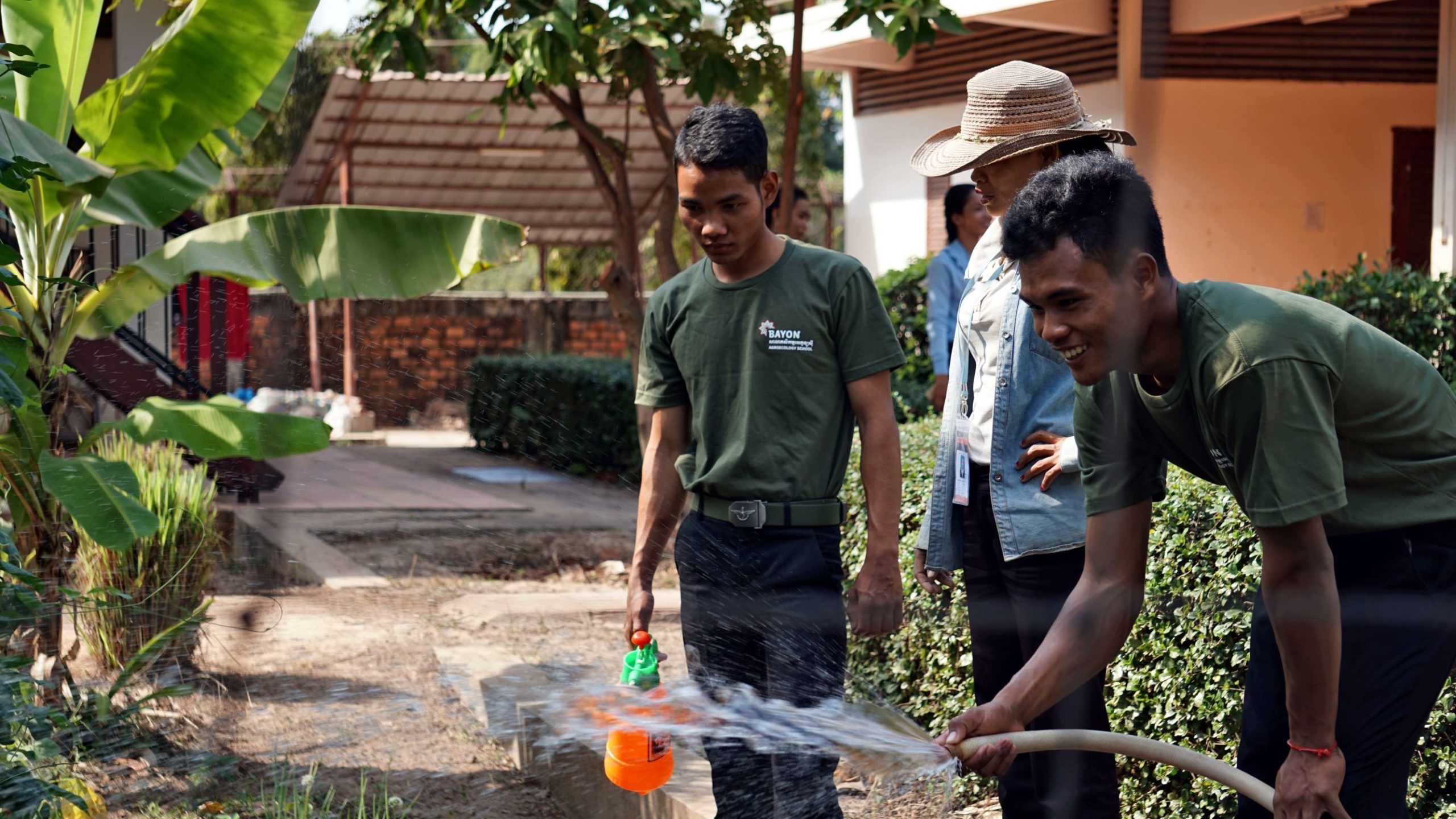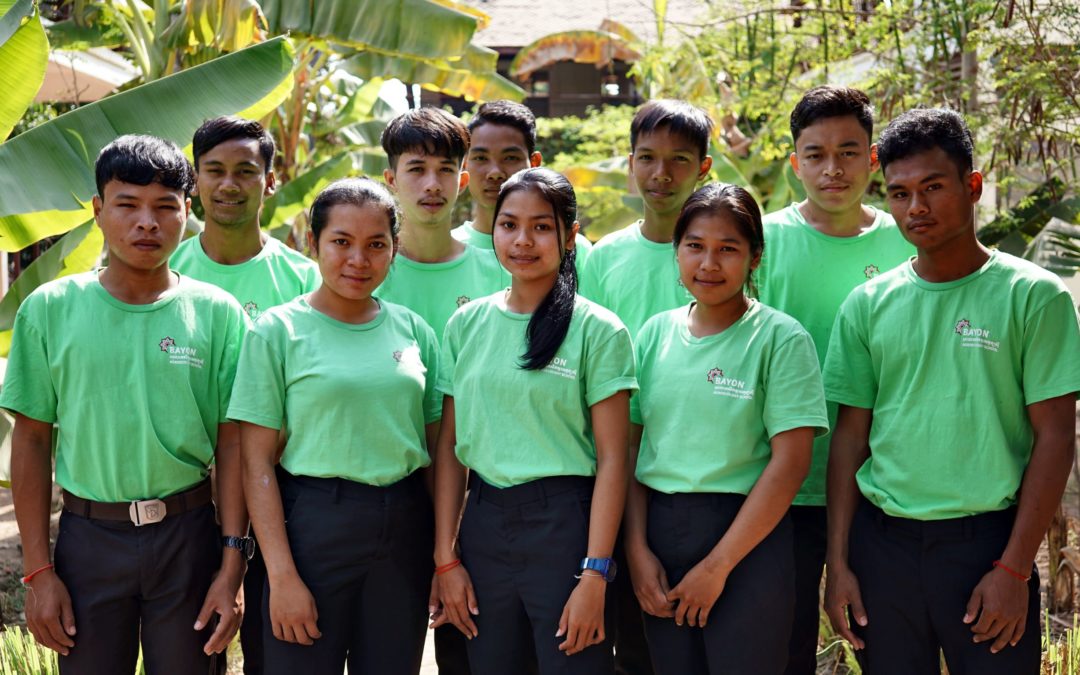The Agroecology School is a cooperative project launched in partnership with Pour Un Sourire d’Enfant (PSE) and Life & Earth. The school opened its doors on January 18th of this year and welcomes its very first intake of 10 students. Following Khmer tradition, the inauguration was accompanied by a blessing ceremony during which three monks were invited to bless the students, the staff and the facilities. In Khmer culture, the blessing ceremony is very important, bringing luck and prosperity to those who receive it.
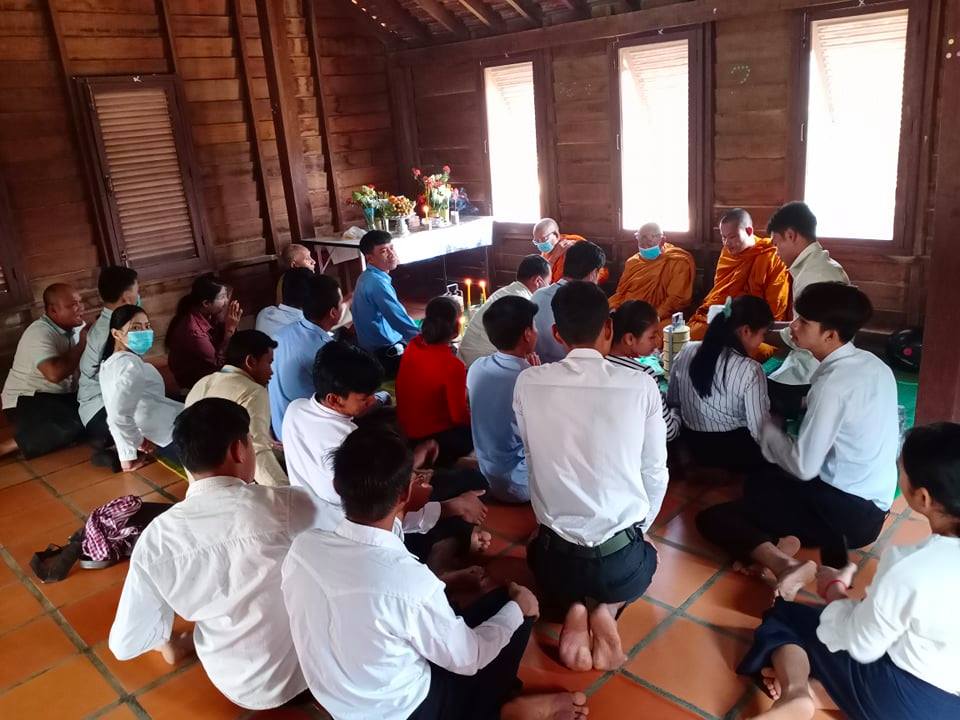
Coming back to the school, our vocational training program aims to give young people, selected from disadvantaged families in Cambodia, skills in agroecology over a 12-month period. Because we wanted our training to be adapted to the context and allow students to be able to insert themselves into the job market in agronomy, our program meets the Cambodian certification criteria in the field.
In order to ensure that they develop the skills and acquire the practical tools they will need for their future profession, field trips are regularly organized. Students are also invited to meet the farmers that we support in our green farming program, or to benefit from technical lessons given by professionals in specific fields.
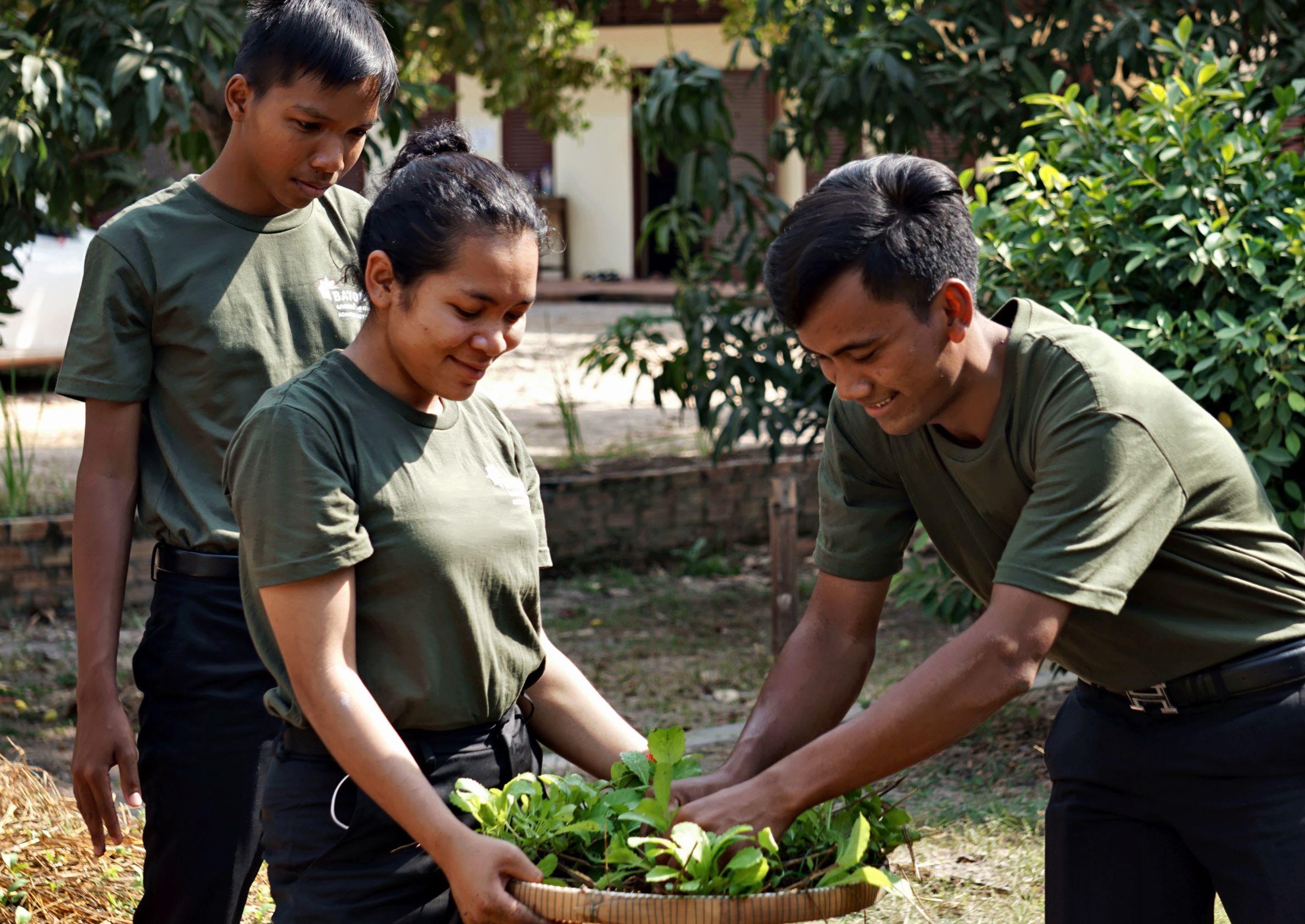


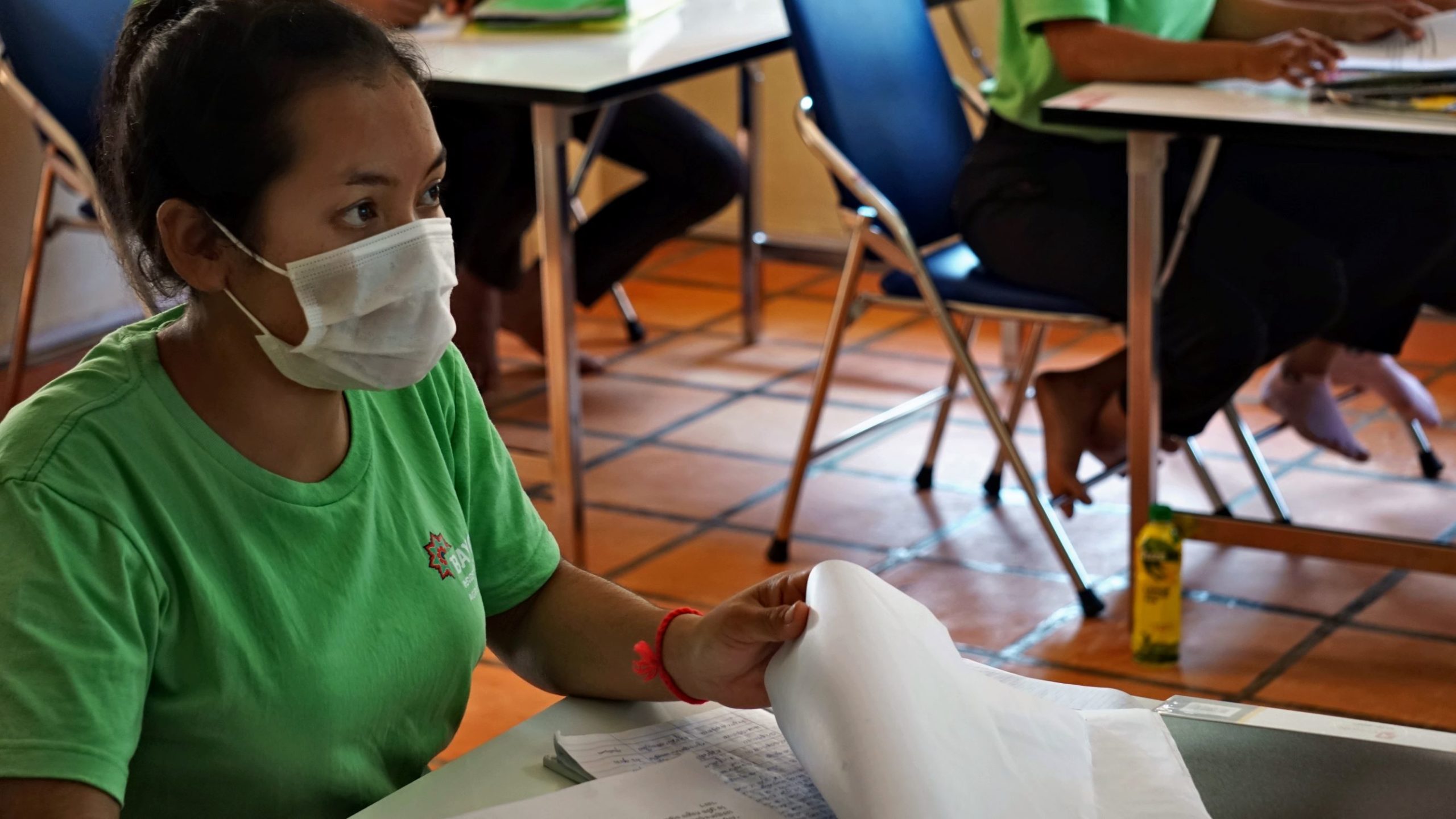
In addition to the regular courses taught at the school, the students will have the opportunity to do 2 internships in farms, agricultural companies, or cooperatives. The objective is clearly for them to gain a first professional experience and to put to the test the skills they have acquired during the training.
Beyond this approach, the internship is an opportunity for them to become familiar with a company that will probably welcome them at the end of their training. Indeed, a study conducted on our pastry school showed that nearly 74% of the students were hired at the end of their apprenticeship in one of the establishments where they did their internship. We expect the same success rates for students in the Agroecology School.
In any case, and because our support does not end with their graduation, we will accompany them to the door of their first employer.
At the end of the training, students will be able to use their technical skills to put agroecology techniques into practice and to carry the values of sustainable development into their future jobs. This implies knowing how to manage small productive farms, how to sell their organic products on the local market, how to establish links with other farmers and organizations, and how to understand agricultural and food systems. In this sense, the primary focus of the training is not the study of agroecology as a discipline, but the profession of agroecologist. The main skill is not to understand or analyze the agroecosystem, but to develop and act as a practitioner of agroecology who knows how to mobilize the ecological principles and processes of ecosystems to produce in a sustainable manner.
